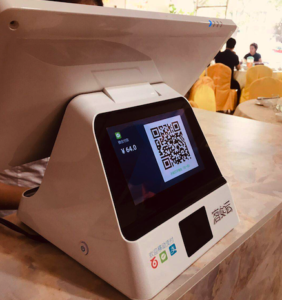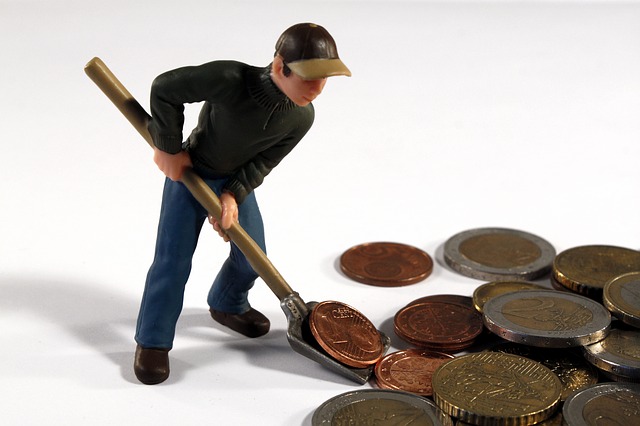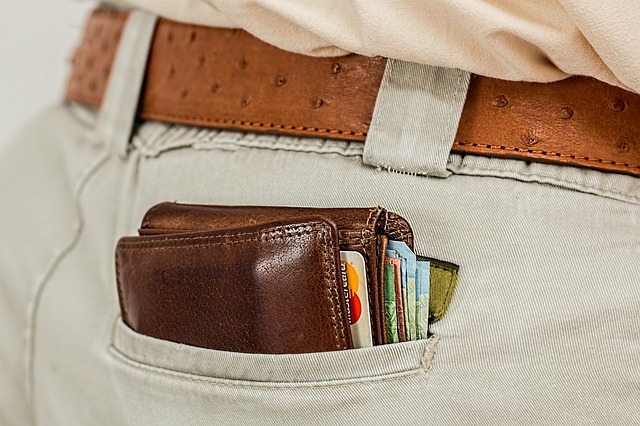Cashless Economy is secure, it is Clean. You have a leadership role to play in taking India towards an increasingly digital economy – Narendra Modi, The Prime minister of India
Do you know an average Chinese don’t use physical cash during his day and just use Wechat and Alipay?
China has two major payment platforms, WeChat Pay and Alipay. As per the South China Morning Post – “Payments via mobile-phone apps such as WeChat Pay and Alipay accounted for more than 80 per cent of the country’s mobile payment segment. China is often seen as the first nation to move towards a completely cashless society”
completely cashless society”
Whether you are finding a cab, renting a bicycle, ordering food online, buying transport and entertainment tickets, taking a bus or metro can use the mobile wallets. Usually, mobile apps have the option to send and receiving money. Recently Shenzhen government has introduced the feature that once can scan our mobile wallet QR code to pay the subway and buses eliminating the need of any RFID card.
Literally, I stopped carrying my physical wallet since last few years. Just keep mobile safe and keep some cash in case of emergency in your backpack. If you want to feel the magic of “Cashless economy “, stay in China for a day.
Then how do we in India go about the Cashless economy?

Indians just love cash. However big retail shop you go, they also prefer to take cash instead of credit card. In reality, even they try to frighten the consumer saying that they need to add the tax if they pay by card. The average consumer is so obsessed with cash that cash has become a way of life in India.
With the advent of new technologies, no doubt life became easier. Consumers are more aligned to new technologies; mobile technology has advanced to a new height when the new potential of “mobile payments” came to reality. From the days of “conventional mobile” to the current days of “smartphones”, thanks to PayTm, the concept of mobile wallets been introduced to Indians. Government’s decision of Demonetization has worked largely in favour of the digital mobile wallets and the common man got introduced with cashless transactions in a big way. While PayTm is the market pioneer in mobile wallets, there are more than 20 digital wallets like Airtel money, Jio money, Ola money, ICICI pockets, LIME, Juspay etc which are now in operation in India. The Indian government also has its own mobile wallet named BHIM (Bharat interface for Money) which have a distinction to other mobile payment apps by its ability to transact between different banks. “Faceless, Paperless, Cashless” is one of the professed role of government promoted Digital India.
Before understanding how we proceed towards a cashless economy, first, we must understand what is the cashless economy? As per Wikipedia, A cashless society describes an economic state whereby financial transactions are not conducted with money in the form of physical banknotes or coins, but rather through the transfer of digital information (usually an electronic representation of money) between the transacting parties.
Why the cashless economy is needed?
Cashless transactions are basically done through card payments or mobile payments which are interfaced with the bank accounts. Hence every single penny transacted will be recorded in bank statements and this helps a transparency in transactions. This helps the government to track and collection of taxes easier. Reduced use of real cash makes us more efficient and more convenient in our daily life. I think I should share how this cashless transaction helping me to lead a convenient life in China.
Disadvantages of Cashless economy
Every technology revolution has both a good and bad side. A cashless economy is also having some disadvantages to hacking, privacy, overspending and additional interest rates. Some interesting disadvantages have been discovered now as the cashless transactions in China is deeply rooted that nowadays merchants rejecting cash transactions from tourists. South China Morning post published that “Cash has been rejected for some consumers in tourist attractions, restaurants, retailers and other industries. This damages the legal status of the yuan, and hurts consumers’ rights to choosing payment methods, according to the notice posted on the central bank’s website.”
Another article on South China Morning Post says that “From big cities to remote villages, smartphones have become wallets, with most transactions in grocery stores now carried out digitally, leaving many printing plants short of work” which is an interesting impact of the cashless economy.
I won’t conclude that cashless economy is good or bad but can say that a proper balance is needed between both types to keep up a healthy economy.
Why in India still cashless transactions is a dream?
For instance, I use PayTm and received some money. I have two options, one option is to send the money back to my account and the other is to consume the money for my needs. But as the Cashless transaction is still in nascent stage in India, an average common person doesn’t have an opportunity to spend using his digital wallet as there are very few accept digital payment for now. In this case, it is obvious that no one will accept payment using mobile and keep their money in mobile idle. One more case is evading tax by discouraging the digital payment. An average vendor would always prompt to give them cash instead of the digital payments so that they can manipulate and pay less tax and the consumer would get attracted to this and prefer to pay by cash. More to come in the next article, which will be published soon! Keep tuned. !
This article is just to share my experience in the cashless environment while my life in China and my thoughts about the cashless economy.
more articles on learning the logical Chinese – Click here
If any suggestions or questions, Don’t hesitate to message me on any of the below social media sites, I would answer you soon.
Twitter – @umkev
Facebook – @murali.today
Instagram – @umkev
Weibo – @umkev
